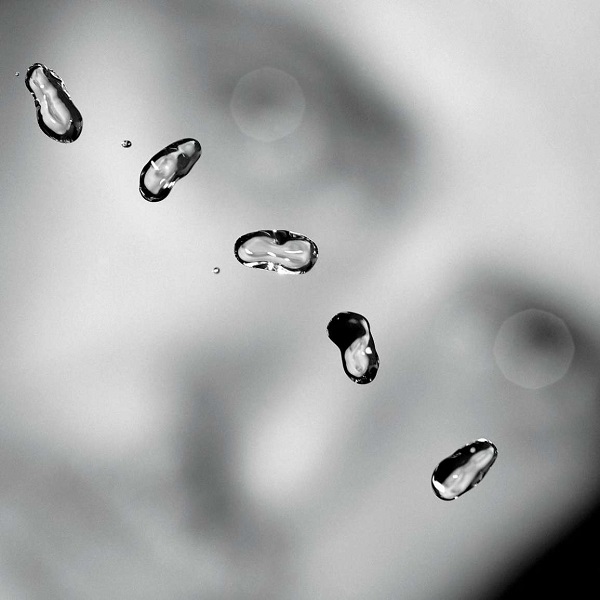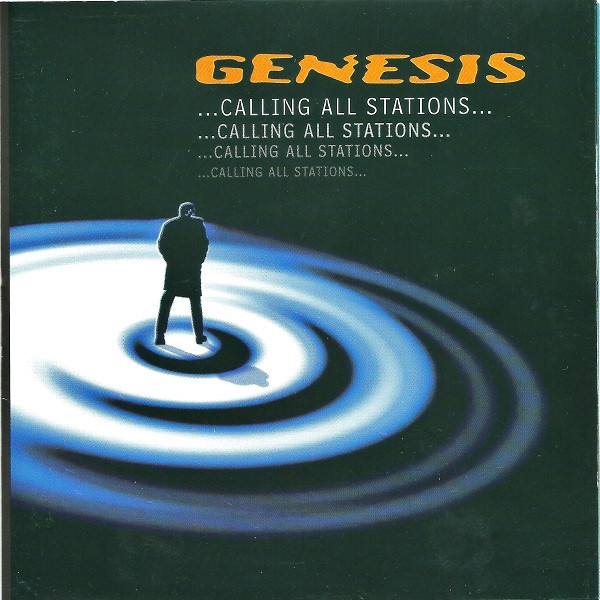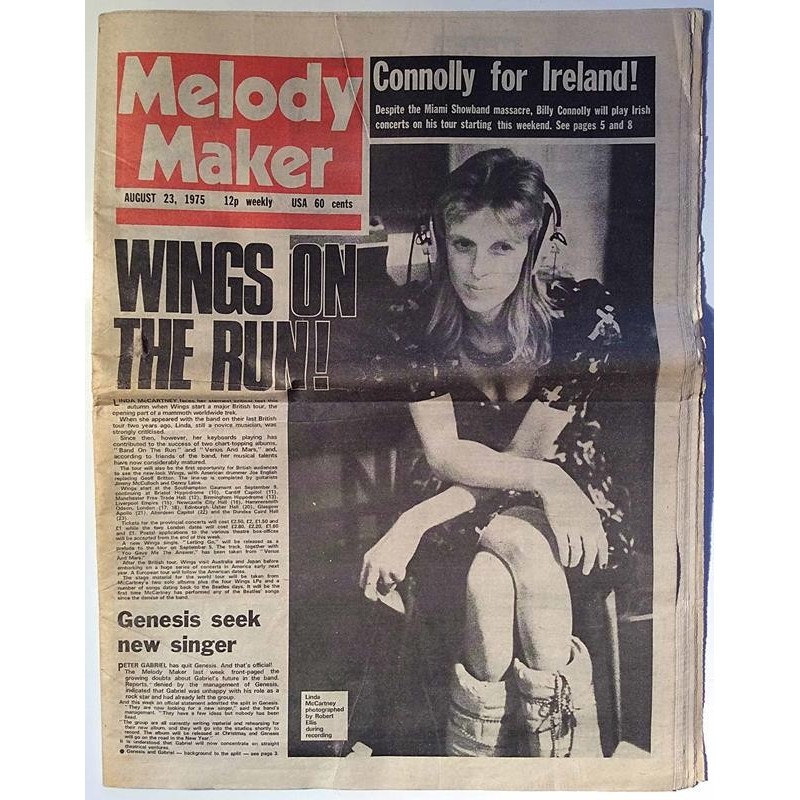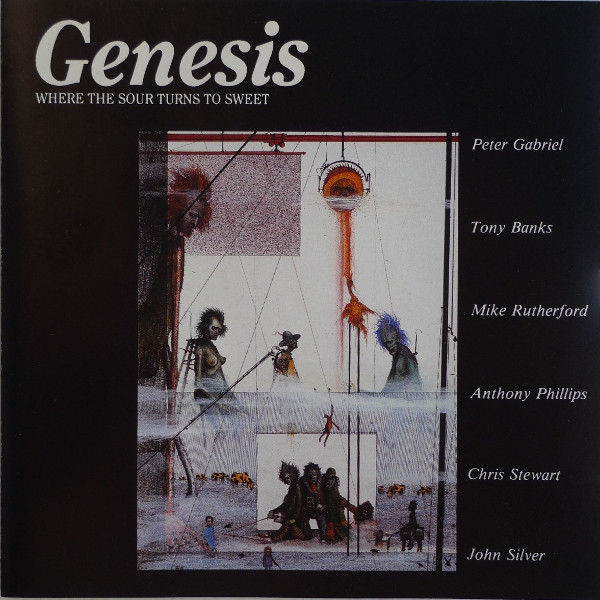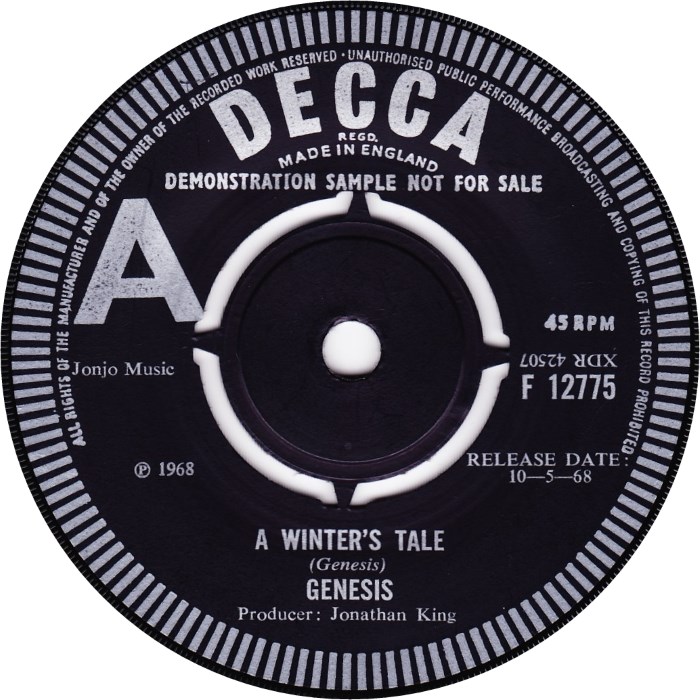On 23 September 2002, Peter Gabriel’s album Up was released.
Continue reading “Up (2002) – Peter Gabriel”Calling All Stations (1997) – Genesis
After Phil Collins’ departure from Genesis in 1996, the remaining two members Tony Banks and Mike Rutherford kept writing music and hired a new singer: Ray Wilson, born in 1968, known as lead vocalist of the band Stiltskin.
Continue reading “Calling All Stations (1997) – Genesis”‘Peter Gabriel Quits Genesis’ – Melody Maker 23th August 1975
A week after The Melody Maker had rumoured about Peter Gabriel’s decision to leave Genesis, the departure was confirmed with the cover story ‘Genesis Seek New Singer’.
Chris Welch recalls a great British Band
At this point, the band had already moved on and worked on what became their next album A Trick of The Tail. Peter Gabriel’s departure was old news for them, but now, they had to deal with the media. For them, Genesis could not exist without Gabriel and his visuals. In the eyes of the critics, he was the band, not just a member of the team. Naturally, the band felt upset by the obtiuary. In The Melody Maker, journalist Chris Welch ‘recalls a great British Band’.
The front page of Melody Maker from 23 August 1975
Several news papers reported about Peter Gabriel’s departure on 23 August 1975. The front page of Melody Maker said:
Genesis seek new singer
PETER GABRIEL has quit Genesis. And that’s official!
The Melody Maker last week front-paged the growing doubts about Gabriel’s future in the band. Reports, denied by the management of Genesis, indicated that Gabriel was unhappy with his role as a rock star and had already left the group.
And this week an official statement admitted the split in Genesis. “They are now looking for a new singer,” said the band’s management. “They have a few ideas but nobody has been fixed.”
“The group are currently writing material and rehearsing for their new album, and they will go into the studio shortly to record. The album will be released at Christmas and Genesis will go on the road in the New Year.”
It is understood that Gabriel will now concentrate on straight theatrical ventures.
Of course, the band was interviewed by the press after the news had come out. Phil Collins remarked that the rest of the band ‘…were not stunned by Peter’s departure because we had known about it for quite a while.’1 They had already decided to carry on without him and interestingly, the new singer was already in the group and was exactly the same member who had exclaimed the statement from the Melody Maker‘s article above. But that’s another story.
Title photo: Front page of Melody Maker 23 August 1975
- Welch, Chris. “Peter Gabriel Quits Genesis”. Melody Maker, 23 August 1975. ↩︎
Where the Sour Turns to Sweet (1969) – Genesis
In June 1969, Genesis released their third and final single for Decca Records: “Where the Sour Turns to Sweet” backed with “In Hiding.” It was intended to spark interest in their debut LP From Genesis to Revelation, but like its predecessors, it went largely unnoticed.
From Genesis to Revelation
By this point, Genesis had already released two singles on Decca: “The Silent Sun” and “A Winter’s Tale,” both in 1968 and both produced by Jonathan King. King also produced the band’s first full-length album, From Genesis to Revelation. The lineup at the time featured Tony Banks (keyboards), Peter Gabriel (vocals), Anthony Phillips (guitar), Mike Rutherford (guitar/bass), and John Silver (drums).
The album, loosely a concept work about the history of mankind, was still musically rooted in soft pop rather than progressive rock. Much to the band’s dismay, King added string arrangements to many tracks, softening the overall sound and steering it further from the band’s original vision.
Like the singles before it, the album failed to attract significant attention. In an effort to salvage interest, Decca decided to release a third single from the LP: “Where the Sour Turns to Sweet.”
Where the Sour Turns to Sweet
The track had actually been part of Genesis’s live repertoire for a while. Back in 1967, they recorded it, along with three other songs, during a one-hour session at Regent Sound Studios in London (where many rock legends had also worked). Jonathan King brought the young band in to record a demo, which was then sent to Decca. The label was impressed, and the band was signed.
They attempted to re-record “Where the Sour Turns to Sweet” at Advision Studios as their debut single, but the session was a disaster. Inexperience on both the band’s and producer’s parts led to the idea being shelved. Instead, “The Silent Sun” and “A Winter’s Tale” were released the following year, along with the full album in 1969.
Finally, on June 27, 1969, “Where the Sour Turns to Sweet” was released as a single (using the album version) with “In Hiding” as the B-side. It became Genesis’s third and last Decca single. Like the others, it failed to chart. There were even plans to release a remixed version of “In the Beginning” as a fourth single, but they never materialized.
Musical Highlights
“Where the Sour Turns to Sweet” opens with a bluesy piano phrase and finger snaps, giving it a laid-back, jazzy feel. Unfortunately, Arthur Greenslade’s added strings somewhat obscure the song’s raw energy. Peter Gabriel’s voice, even at this early stage, stands ou. His playful delivery and dynamic phrasing give the lyrics character and charm. It’s arguably one of the album’s standout tracks, though the fade-out feels abrupt and slightly uninspired.
Tony Banks and Tony Blackburn
Keyboardist Tony Banks once recalled being sent out to accost BBC DJ Tony Blackburn on the street to persuade him to play the single on his radio show (though Mike Rutherford claims that this was done when “A Winter’s Tale” was released.) “I told him, ‘Well, don’t play the A-side—play the B-side,’” Banks later said, referring to “In Hiding.” The situation was awkward for everyone involved, but the band was desperate enough to take the chance.
The End of the King Era
By the end of 1969, after three underwhelming singles and an album that missed the mark, Genesis was ready to move on. Jonathan King had taken the group as far as he could. The band withdrew to the countryside to reflect and write new music that would take them in a very different, much more adventurous direction.
Still, King left them with one important legacy: the name Genesis.
A Winter’s Tale (1968) – Genesis
On 10 May 1968, Genesis released their second single. Like its predecessor – and its successor – it failed to make an impact. Here’s the story behind A Winter’s Tale.
In 1968, Genesis were still schoolboys. The four classmates from Charterhouse were in their late teens when producer Jonathan King offered them a record deal. Tony Banks (keyboards), Peter Gabriel (vocals), Anthony Phillips (guitar), Mike Rutherford (guitar and bass), and Chris Stewart (drums) agreed. King chose to produce their first album himself, and it was he who came up with the name “Genesis,” symbolising both the band’s beginning and the start of his own career as a producer.
The first singles
Genesis had been writing pop songs while still at school, but by the time they signed their deal, they were already moving towards more adventurous material. Jonathan King, however, preferred straightforward pop. So, to please him, Tony Banks and Peter Gabriel wrote The Silent Sun, a deliberate nod to the Bee Gees, which King loved and released as their debut single. It flopped.
A Winter’s Tale
For their second single, A Winter’s Tale, Tony Banks and Peter Gabriel again collaborated. Like The Silent Sun, it’s a love song, but here, the band sounds more confident, particularly in the soaring chorus. Once again, Peter Gabriel’s distinctive voice takes centre stage, rising above a lush (and somewhat overpowering) string arrangement. Even at this young age, Gabriel’s vocal strength hinted at the frontman he would soon become.
Unfortunately, A Winter’s Tale also failed to chart. It received little radio play and only a couple of published reviews. New Musical Express praised the song’s “pulsating crescendo” and thoughtful lyrics, but continued: “The melody could have done with a little more substance.”1
Mike Rutherford recalls in his autobiography that the band brainstormed ways to boost airplay. Peter Gabriel suggested they hand the single directly to BBC Radio 1 DJ Tony Blackburn. Tony Banks was tasked with waiting outside Broadcasting House. Nervous and unsure, he apparently came across a little too forcefully when Blackburn emerged – likely startling him and not helping their cause.2
From Genesis to Revelation
Shortly after the release of A Winter’s Tale, drummer Chris Stewart left the band and was replaced by John Silver, who would record their debut album From Genesis to Revelation. The album was an ambitious concept piece about the history of mankind, but musically, it still leaned far more towards soft pop than progressive rock. To the band’s disappointment, King added even more lush string arrangements, giving the album a gentle, almost easy-listening feel.
A third single, Where the Sour Turns to Sweet, followed, but like the others, it failed to chart. Eventually, the growing divide between King’s pop sensibilities and the band’s evolving musical ambitions led them to part ways.
What remains from this era is a fascinating and surprisingly strong collection of songs recorded by a band still in their teens. Among them is A Winter’s Tale, a glimpse of what was to come.
(And as a footnote for collectors: there’s a curious story about a cover version of A Winter’s Tale by Rita Pavone’s brother – but that’s a tale for another time.)
Ray Wilson Announced as New Genesis Frontman
On June 6, 1997, Tony Banks and Mike Rutherford announced the new lead singer of Genesis following Phil Collins’ departure: 28-year-old Ray Wilson.
When Phil Collins revealed in March 1996 that he would be leaving Genesis after 25 years, fans were eager to learn who would step into his shoes. Genesis had already weathered the departure of their original frontman, Peter Gabriel, back in 1975. Now, two decades later, Tony Banks (keyboards) and Mike Rutherford (guitars), the remaining founding members, were determined to carry on once more.
They began writing and recording new material, searching for a vocalist who could help them shape the band’s next chapter. Rumors swirled in the music press, speculating about possible replacements. Then, on June 6, 1997, it was official: Ray Wilson would be the new voice of Genesis.
Who is Ray Wilson?
Born in Dumfries, Scotland, on September 8, 1968, Ray had previously fronted the band Guaranteed Pure and was best known for his work with Stiltskin, whose hit single “Inside” reached number one in 1994, thanks in part to its use in a Levi’s commercial. So, while Ray wasn’t an unknown figure in music, the stylistic gap between Stiltskin and Genesis left both his fans and Genesis fans surprised and cautious.
Reflecting on the moment in the Songbook DVD, Ray recalled:
‘I was in my little studio writing songs. It was ten in the morning, I was making a coffee, and Tony Smith, the manager of Genesis, was on the phone: ‘Would you like to come and audition to replace Phil Collins?”
By then, Phil Collins’ massive solo success had blurred the public’s perception of Genesis. It was often seen as “Phil Collins and his band”. Taking over that role and shifting that image would be no easy task.
Calling All Stations
Ray joined Tony and Mike at The Farm, Genesis’ private studio in Surrey, to begin recording what would become Calling All Stations. Most of the songs had already been written by Banks and Rutherford, but Ray contributed several ideas of his own. The result was a darker, more melancholic record. The vibrant energy and accessible pop sensibility Phil had brought to the group were now absent, and with it, part of the familiar Genesis chemistry.
Still, Ray’s emotionally rich vocals suited the mood of the new material. His voice, more reminiscent of Peter Gabriel than Phil Collins, blended well with the brooding tone of the songs. Calling All Stations, like its predecessor We Can’t Dance, was produced by Nick Davis.
Three singles were released from the album: “Congo”, “Shipwrecked”, and “Not About Us”. Ray co-wrote the latter, along with “Small Talk” and “There Must Be Some Other Way.” Drums on the record were provided by Israeli session musician Nir Zidkyahu and Nick D’Virgilio from American prog-rock band Spock’s Beard.
Despite Ray’s strong performance, critics were less than kind. NME wrote dismissively that “the world doesn’t care enough about Genesis to make the effort” and claimed people had “forgotten why they were once any good.” Q magazine criticized the album for offering “just darkness, confusion, individual isolation,” calling it “one-paced and one-dimensional.”
Live in 1998: Ray on Tour
On tour, however, Ray proved his versatility. The setlist spanned the entire Genesis catalog from the pop-era hits like “Invisible Touch”, “No Son Of Mine”, and an acoustic version of “Follow You Follow Me”, to later epics such as “Home by the Sea”, and even classic Gabriel-era tracks like “Carpet Crawlers” and “The Lamb Lies Down on Broadway.” New material from Calling All Stations also held up well live. Some songs, like the title track, even sounded better on stage.
Ray, Mike, and Tony were joined on tour by Nir Zidkyahu on drums and Anthony Drennan on guitar and bass, effectively filling the shoes of Chester Thompson and Daryl Stuermer.
Commercial Struggles
Despite reaching No. 2 in the UK, Calling All Stations underperformed in the U.S., peaking at just No. 54. Ticket sales also fell short of expectations. As a result, the production and scale of the tour were scaled back and the planned American leg was cancelled entirely.
After the 1998 tour, Tony Banks and Mike Rutherford decided to put Genesis on indefinite hold.
Looking Back
Although this wasn’t the end of Genesis, in 1998 it certainly felt like it. And sadly, Ray Wilson, thrust into a difficult situation, was unfairly blamed by some critics and fans for the band’s lack of commercial success during this era.
But this criticism doesn’t hold up. Ray brought a unique voice and delivered both the new material and the classics whether originally sung by Peter Gabriel or Phil Collins with emotion and distinction.
Following the end of Genesis, Ray took time to regroup before launching a solo career. He has since released several solo albums and continues to perform live, often including Genesis songs in his setlists.
Title photo: Ray Wilson live in Dortmund in 2017 (Photo: André Wilms of ‘The Photography Of Mister Ilms)‘.
3×3 (EP, 1982) – Genesis
In May 1982, Genesis released 3×3, an extended play featuring three songs left over from the Abacab sessions – tracks that did not make it onto the album but were too good to shelve.
Three Unreleased Songs from the Abacab Sessions
Abacab (1981) marked a turning point for Genesis. With a new producer, Hugh Padgham, and their newly purchased studio – The Farm in Surrey – the band had the freedom to jam, experiment, and refine their sound. When the album was finalized, they found themselves with a few strong tracks that had not made the cut. Rather than letting them go to waste, they chose to release them on an EP the following year.
The songs – Paperlate, You Might Recall, and Me and Virgil – were all co-written by Tony Banks, Phil Collins, and Mike Rutherford. The 3×3 EP came out in May 1982, between two major tours. In the U.S., it was never released as an EP; only Paperlate appeared as a single, with You Might Recall on the B-side.
The Songs
Paperlate shares a similar vibe with No Reply at All from Abacab – funky, upbeat, and driven by the Earth, Wind & Fire horn section, who had also worked with Collins on his solo debut Face Value. The title “Paperlate” comes from a lyric in Dancing with the Moonlit Knight (from Selling England by the Pound, 1973). During a soundcheck in either 1978 or 1980, Phil kept repeating the line “Paperlate cried a voice in the crowd…”, which eventually sparked the idea for a new song.
You Might Recall is a more romantic tune, stylistically close to some of Mike Rutherford’s earlier ballads like Alone Tonight.
The final track, Me and Virgil, is a storytelling piece reminiscent of Deep in the Motherlode (1978). This time, it was Collins who penned a Wild West narrative, with the band attempting to capture the spirit of The Band. However, Collins later expressed dissatisfaction with the track, and it was notably left off the Genesis Archive 2 box set in 2000.
Beatles-Inspired Artwork
The EP’s cover art was a playful homage to the Beatles’ 1960s EPs, particularly Twist and Shout. Genesis even brought in Tony Barrow, the Beatles’ former press officer, to write the sleeve notes in a cheeky, retro style (“These cheeky chappies from Guildford…”).
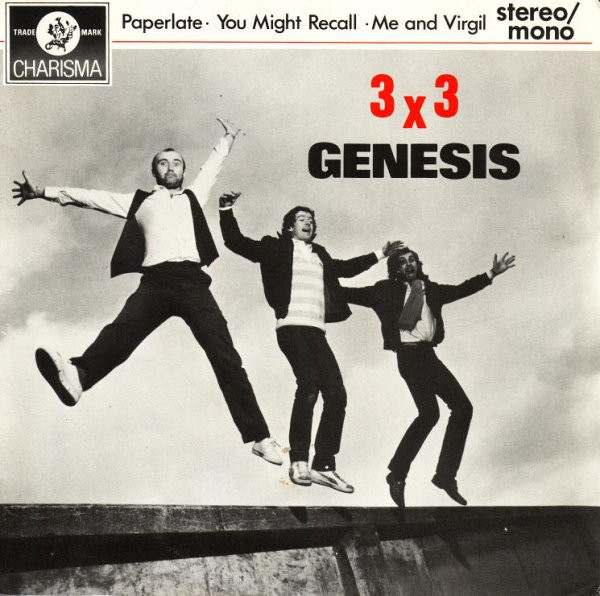
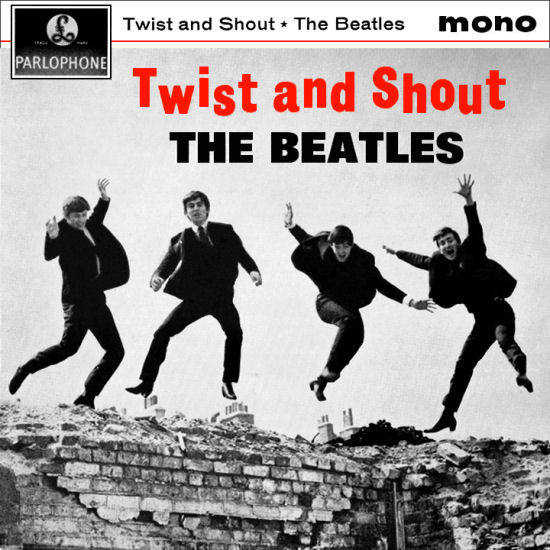
Not everyone got the joke. One reviewer, unaware of the Beatles reference, assumed the design was serious. But fans appreciated the nod, and the band’s sense of humor shone through once again. The EP was a hit in the UK, and Paperlate earned the band another appearance on Top of the Pops, with the EP reaching No. 10 on the charts.
Three Sides Live and the U.S. Version of 3×3
Later that year, Genesis released the live album Three Sides Live. Since EPs did not sell particularly well in the U.S., the band opted to include the 3×3 tracks on the album’s fourth side instead of releasing them separately. To round out that side, they added two outtakes from the Duke sessions: Open Door (by Rutherford) and Evidence of Autumn (by Banks). The UK version, in contrast, featured a full fourth side of live material.
3×3 was never released as a standalone CD. However, Paperlate and You Might Recall were included in the Genesis Archive 2: 1976–1992 box set in 2000, which featured many previously unavailable tracks. All three EP songs, including a remixed Me and Virgil, were later made available on CD in the Genesis 1976–1982 box set.

